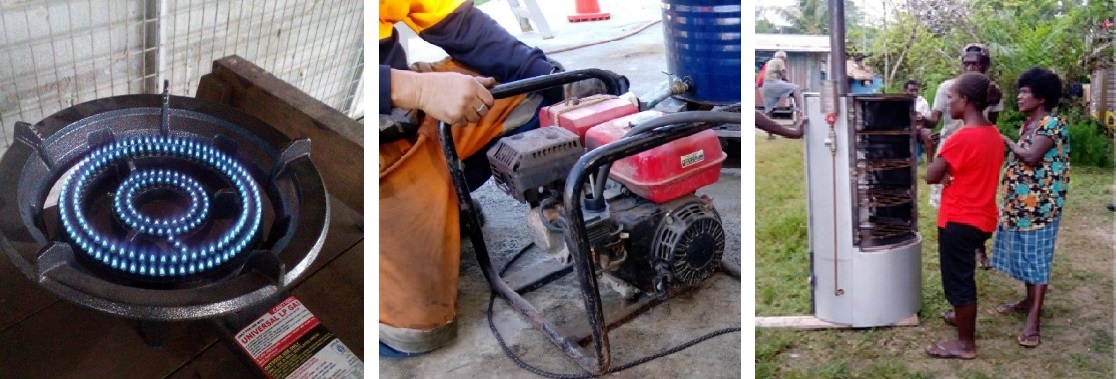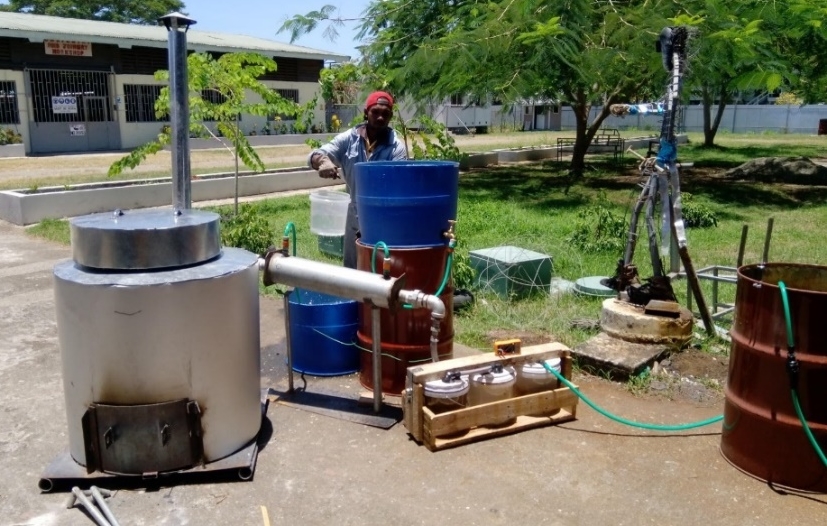Small scale waste to fuels in the Pacific Islands
Nufuels Ltd has developed a small simple integrated energy system, based on pyrolysis, that converts waste plastic bags and bottles into energy suitable for local cooking, baking, drying and electricity. It has the potential to be extended to biomass.
The system is suitable for construction and easy use by communities in the Pacific, and has been developed under a NZAID project with Caritas Aotearoa New Zealand.
It is also suitable for use by tourism operators seeking to help clean up their local environment. We have recently been recognised as a “Top Innovator” and invited to join the UpLink Innovation Network Programme, facilitated by Friends of Ocean Action & World Economic Forum and partners to help scale and advance the business.
Expansion in Melanesia was delayed by COVID, but we have recently been awarded a contract by UNDP and are starting further roll out. Its early development was assisted by a Waste Levy Grant from our local Kapiti Coast District Council.
The system consists of a retort (front) fired typically by wood or fuel from the process. The retort will take around 7kgs of mixed Polyethylene and PET. The pyrolysis gases pass through a condenser (center right with cooling water in drum behind the retort) with crude accumulating in containers in the blue water bath (right). The incondensable gas (mainly methane/ethane mix) is stored in a water sealed system (not visible).
Around 5kgs of a viscous plastics crude and 2kgs of gas is produced per cook. The crude has about the energy density of diesel but has a low flash point so needs to be handled like petrol. Unlike the gas however it can be distributed locally.

The gas is suitable for cooking and running in a petrol genset. The crude is being used in a rocket stove that allows baking and drying while keeping the fuel and exhausts away from the produce.
Overall the system gives a local integrated source of energy to meet most needs, while helping to dispose of a difficult waste.
The only emissions to air from any part of the system arise from the burning of the various fuels. More complex plastics (e.g. brominated, chlorinated) do need to be avoided in the feedstock.
If you would like to contribute you can download a presentation on our approach (1.3MB) or contact Leigh Ramsey.
The following videos show the system operating and tell more about what is happening in the Solomon Islands.

